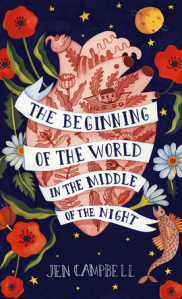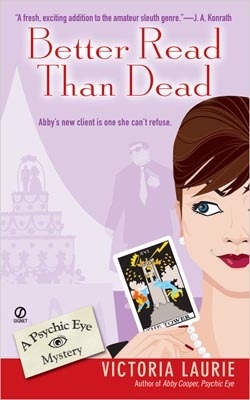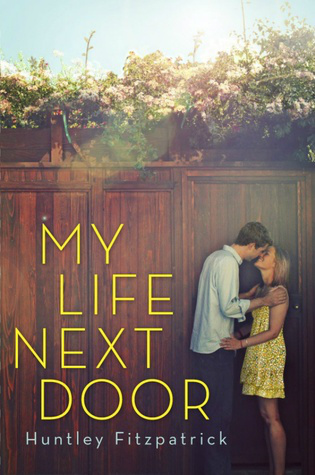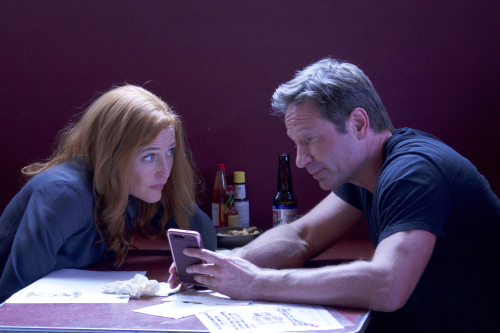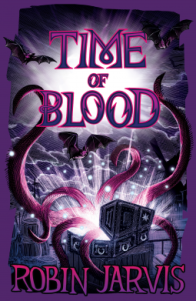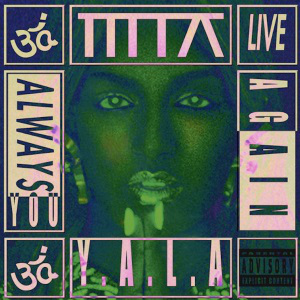
In the last two or three years, reading has become one of my favorite hobbies. I’m practically on a new book every week. Everything is tracked on a spreadsheet including what I have read, when I read it, and what I’m going to read next. My list of books to read always changes based on library availability, date of release, and general interest at that time. And I like to keep things diverse, too. I mostly read non-fiction, but I do enjoy a good novel or graphic novel once in a while. To help keep things diverse, I compile my reading list based on my interest, recommendation from friends, and author interviews on shows like Fresh Air or Real Time with Bill Maher.
Reading wasn’t something I really did. Of course, I read books while in school. However, unless I really cared about a subject or author, I really didn’t read for leisure. When I started becoming an active reader, I picked up my first book November 2014; my first book in four years. There’s a story as to how I became a voracious reader, but I’ll save that for another entry.
One activity I engage in to keep me a healthy and well-rounded reader is participating in a book club. Though, you can’t just join any book club. There’s so much to consider when participating in a book club. You have to be interested in the book selections, enjoy the company of people around you, and find the time to actually do it. Finding the right book club for you is like trying shoes. You have to go through all sorts of styles before finding the right fit.
I like the idea of book clubs on the surface level, but it is different when you actually go. My first book club I went to was last year. I went once. The people were fine and the book selection was fine (Bonk by Mary Roach), but I just didn’t feel like I really belonged. Prior to that, the only club I went to was one organized by a colleague from CHIRP, the community radio station I volunteer with. I only went to one meeting. Not because I didn’t have any fun or enjoyed the book, but because CHIRP’s book club wouldn’t meet again for another year. The organizer had just been really busy.
Since October, the CHIRP Radio book club has picked back up and meeting every other month. And I really like it. Most of the attendees are friends and colleagues, plus we read books on music. Consistent themes in a book club are an underrated aspect of the experience.
Last week, the book club was meeting to discuss the latest selection Girls to the Front: The True Story of the Riot Grrrl Revolution by Sara Marcus. In short, this book was a history of the Riot Grrrl movement that elevated girls’ and women’s role in the music scene, blended punk rock and fashion, and is attributed to the creation and development of third-wave feminism. Unfortunately, the Riot Grrrl movement only last for a few years in the early 1990s.
Due to a number of factors such as rainy weather and busy schedules, most of the regulars didn’t show up. It looked like it was just going to by one of my colleagues and me. We were even debating on adjusting the normal book club schedule to accommodate such a low turnout. However, right on time, two women who I didn’t know and were not a part of CHIRP Radio came to attend the book club.
I had volunteered prior to the meeting to lead the book discussion. Not because I consider myself an authority on feminism or Riot Grrrl specifically, but I just really enjoy talking about books. My colleague, an educated and fun woman, had me start off the discussion. I introduced the book and started to summarize the key points when I had a sudden realization. I was the only man there. I was the only man there discussing a book about a feminist movement. I was the only man there discussing a book about a feminist movement to a group of women. The irony was slowly sinking in. I nervously laughed it off, addressed the male elephant in the room, and passed off the role of discussion leader to my colleague who had also wondered why I wanted to lead this discussion (Again, I just like talking about books).
Our discussion on the book was fascinating and enlightening. It was a comfortable space where we shared out opinions and analyses involving the Riot Grrrl movement including what the flaws were, why was the movement so short, or what they could have done to keep it going. Naturally, since the movement is so heavily associated with feminism, we talked a lot about feminism. Specifically, what feminism meant to the girls and women in this movement and comparing it the previous feminist waves.
While I am certainly no authority of feminism, I do consider myself a feminist. And despite my nervousness earlier when introducing the book, I was able to engage actively and navigate very difficult topics. My colleague had teased me by saying this was a safe space and that it was okay to discuss these things. That certainly helped and was funny. I am a straight cisgender white male and my experiences in that world means I don’t always have the most progressive and inclusive views at all times, but my humanist outlook has value and I actively try to be thoughtful and considerate of all people involved in a neutral and respectful way. For example, my colleague had asked the group if we thought the women in the book hated men and, if so, was that ok. The other two women in the group stated their points that the women in the book hated men and that it wasn’t ok. I disagreed and firmly believed the women didn’t hate men and, if they did, that’s ok. I was asked to explain my answer and I stated that was ok for groups of people with shared physical traits or ideologies to congregate on their own terms. The girls and women in this book wanted to hang out with other girls and women. That meant that had to exclude boys to do that. And I fully support that. They should have the freedom and ability to do that without question or interference. This led to a discussion about discrimination and I held onto that belief altruistically. If a nasty racist group wanted to meet and exclude whoever they wanted to exclude that, that’s tolerable. It’s not ok in the sense that it is fine or acceptable to let that happen, but it has to be tolerated. Plus, there are creative ways you can banish those groups to the corner without affecting their rights such as removing their racist posts on social media. As long as the government doesn’t interfere with their free speech, they can be culturally excluded. As long as no group isn’t being violent or inciting violence, it’s their right to meet, demonstrate, and be as exclusive or inclusive as they want. I don’t think the women in the book club necessarily agreed with that point, but I communicated it rationally. It may not be the most “woke” thing to believe, but I try to learn, be more thoughtful and considerate, and not be a complete shitbag.
The most interesting discussion revolved around third-wave feminism’s relationship to the second-wave and what will the fourth-wave look like. We discussed why well-established feminist organizations didn’t step in to help support the Riot Grrrl movement. There may be a lot of answers to that question ranging from those organizations didn’t know to that they didn’t care. I personally believe it was the latter. We discussed how the values of third-wave feminists weren’t respected by second-wave feminists who had more limited views on the definitions of femininity and what it means to be a woman. That generational divide applied to both age and ideals and is a logical answer to the question of why Riot Grrrl wasn’t supported by the likes of Gloria Steinem or Andrea Dworkin.
Third-wave feminism is, currently, the last wave that is agreed upon en masse. The fourth-wave, in terms of what it means as well as the people and ideas that embody it, have yet to be agreed upon. There are a lot of ideas floating around that fourth-wave feminism means including social media’s impact on feminism, transgender support, reproductive justice, and increased presence of women in senior leadership roles. All of those are great things. It is just that there is not solid outline as of yet.
I had raised the question to the group as to what they think fourth-wave feminism will look like and their goals from that movement. My colleague, a woman of Indian ethnicity, stated she wants the fourth-wave of feminism to be led by woman of color. We talked about how feminist movements had been led by educated western white women and there had always been issues with inclusivity when it came to woman of color (the Riot Grrrl movement experienced the same criticism in the book). While a lot of progressive liberals are focused on ivory tower feminist issues such as why Mayim Bialik thinks women shouldn’t be referred to as girls, women of color abroad face issues and unspeakable horrors that simply don’t enter into the lives of white women in this country.
The rapper M.I.A. was brought up as someone who has been valuable at raising awareness over issues facing women of color. Born Mathangi Arulpragasam, M.I.A. has been an activist focusing on issues facing Sri Lankan Tamils, Palestinians and African Americans. She cites her voicelessness as a child as being the motivation for her role as a refugee advocate. While M.I.A.’s activism has drawn a considerable blend of criticism and praise, she has undoubtedly been influential in elevating the role of women of color in not only music but also their place in the world.
I wasn’t really aware of M.I.A. when she released Arular in 2005. Like most people, my introduction to her music was the 2007 album Kala because “Paper Planes” was a huge hit. It was all over the radio and featured in commercials and movies. It was a popular and inescapable song. And rightfully so. It is a great song.
I’ve paid attention to M.I.A.’s career since then. In 2013, she released Matangi. The fourth single released from that record was “Y.A.L.A.” and instantly became my favorite M.I.A. song. With its heavy beat and hypnotic rhyming, it is a catchy song that is also poignant and clever. “Y.A.L.A” stands for “You Always Live Again” and is a direct reference to Drake’s song and the popularization of his term “Y.O.L.O.” (“You Only Live Once”). M.I.A. uses Hindu themes to lampoon a ridiculous pop culture statement that invites recklessness and thoughtlessness. She poses the question of why, if we only live once, then why do we keep doing the same shit. Culturally aware, M.I.A.’s critique of such selfish disregard is enlightening and indicative of her work blending social justice and music.
Advertisements Share this: